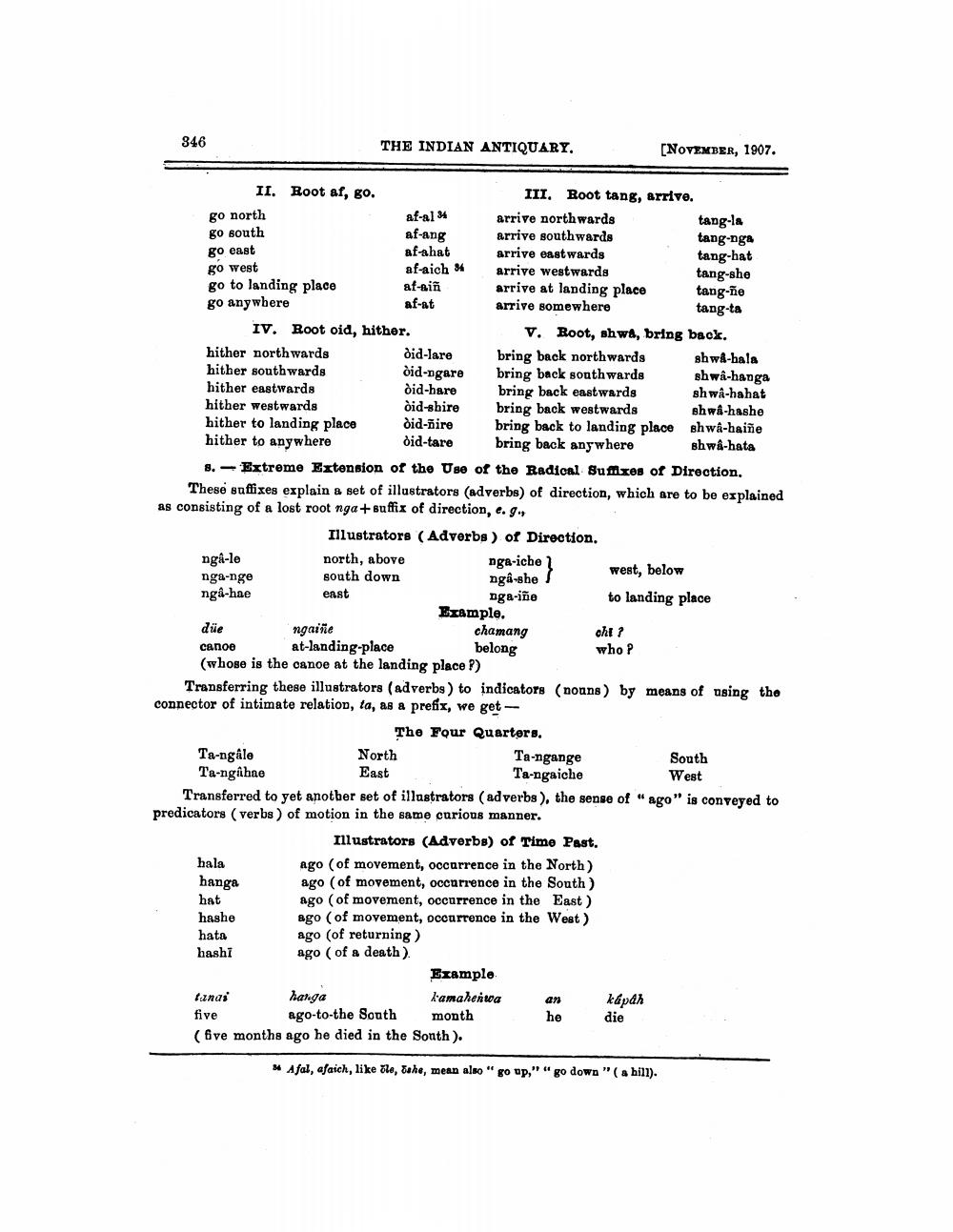________________
346
THE INDIAN ANTIQUARY.
[NOVEMBER, 1907.
go east
II. Root af, go.
III. Root tang, arrive. go north af-al arrive northwards
tang-la go south
af-ang arrive southwards
tang-nga af-ahat arrive eastwards
tang-hat go west af aich 4 arrive westwards
tang-she go to landing place
af-siñ arrive at landing place tang-ñe go anywhere af-at arrive somewhere
tang-ta IV. Root oid, hither.
V. Boot, shwa, bring back. hither northwards
did-lare bring back northwards shwa-bala hither southwards
òid-ngare bring back southwards shwa-hanga hither eastwards
did-hare bring back eastwards shwa-habat hither westwards
òidshire bring back westwards shwa-hashe hither to landing place did-ñire bring back to landing place shwa-haiñe hither to anywhere
did-tare bring back anywhere shwa hata 8. Extreme Extension of the Use of the Radical Suxes of Direction.
These suffixes explain & set of illustrators (adverbs) of direction, which are to be explained as consisting of a lost root nga + suffix of direction, e. 9.
Illustrators (Adverbs ) of Direction, ngâ-le north, above
nga-iche south down nga-nge
west, below
nga-shes nga-hae east
nga-iñe to landing place
Example. düe ngaiñe
chamang canoe at-landing-place
belong
who P (whose is the canoe at the landing place ?)
Transferring these illustrators (adverbs) to indicators (nouns) by means of using the connector of intimate relation, ta, as a prefix, we get
The Four Quarters. Ta-ngale North Ta-ngange
South Ta-ngahae East Ta-ngaiche
West Transferred to yet another set of illustrators (adverbs), the sense of "ago" is conveyed to predicators (verbs) of motion in the same curious manner.
Illustrators (Adverbs) of Time Past. hala
Ago (of movement, occurrence in the North) hanga
ago (of movement, occurrence in the South ) hat
ago (of movement, occurrence in the East) hashe ago (of movement, occurrence in the West ) hata
ago (of returning ) hashi ago (of a death)
Example tanas
kamahenwa
k&pah five ago-to-the South month
die (five months ago he died in the Sonth ).
cht?
hanga
M Afal, afaich, like ole, dahe, mean also " go up," "go down"( a hill).




